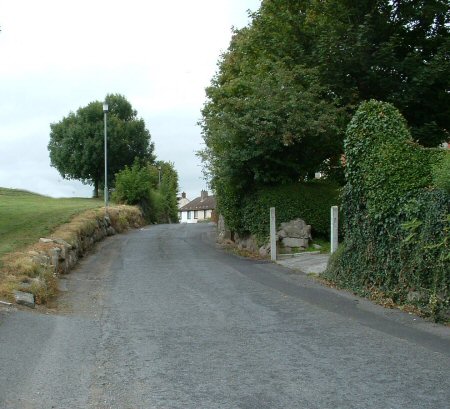Our busiest and happiest times along the Derrybeg River (really a tiny stream) was in the summer months for it was then that the sprickleys were running, the hawthorn was in bloom and strongly perfumed and Corr’s field was awash with buttercups.
We did not disturb the trees and bushes in search of suitable forks for catapults in that season. No! That was later in the autumn. Then we merely scouted those same hawthorn and blackthorn and other young trees like ash and willow used by farmers for hedging, in search of birds’ nests. Later when the blooms turned to seeds and fruit, we would stock up with pocketfuls to use as ammunition for our ‘pluffers’.
It always
If I remember right, the thrushes’ nest was the most common: then there were the really rare ones, like the wood pigeon, that we would spend hours in search of, and never, ever reveal to others when we had located it. They would be far from our home patch – out by the Eighteen Arches, or deep in Oul’ Woodsie’s fields.
Not all of our band – or members of rival gangs – were so conservation-conscious. Some were not content merely with spotting nests and keeping the sites secret. There was the odd vandal who would handle the eggs, despite being warned that, devoted as the parent birds were, the mere touching of the eggs meant that the nest would be forsaken.
I clearly remember on a number of occasions, from less than ten inches away, my head deep in the hawthorn bush, staring at the mother bird clocking on her eggs. I was told that so long as I did nothing to disturb her, like reaching out, all would be well. Her plump breast beat and throbbed rapidly with fear but she would not flee. She stared me out and won.
And it was so. I returned a week later to find her still clocking. I followed the development of those chicks like they were my own!
I remember one morning being close to tears as I walked down the Pighall Loanan to see the little blue eggs shells from the nests we had recently located in the nearby branches now scattered in tiny, fragile bits around the yolks and albumen that were to feed the growing chick before it hatched.
And I observed some righteous pals face up in fisticuffs to their callous colleagues who so flagrantly spurned all the rules we held so sacred. Friendships forged over years of childhood and youth were instantly forgotten and some indeed, never renewed.
This was a breach of faith: a matter of principle!
…. more later ….
